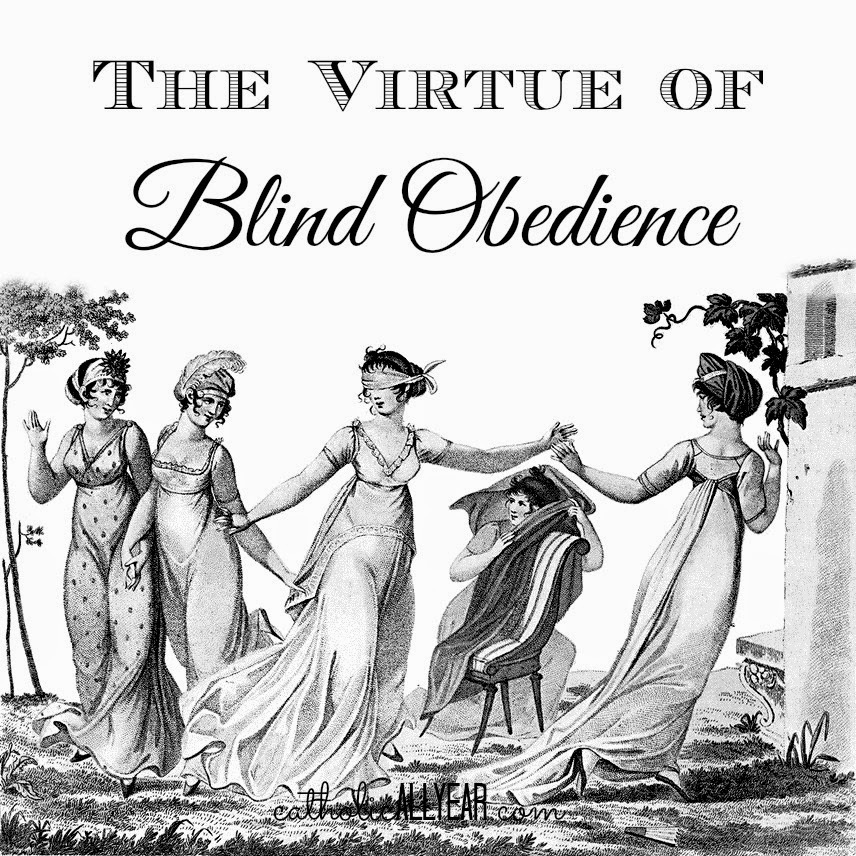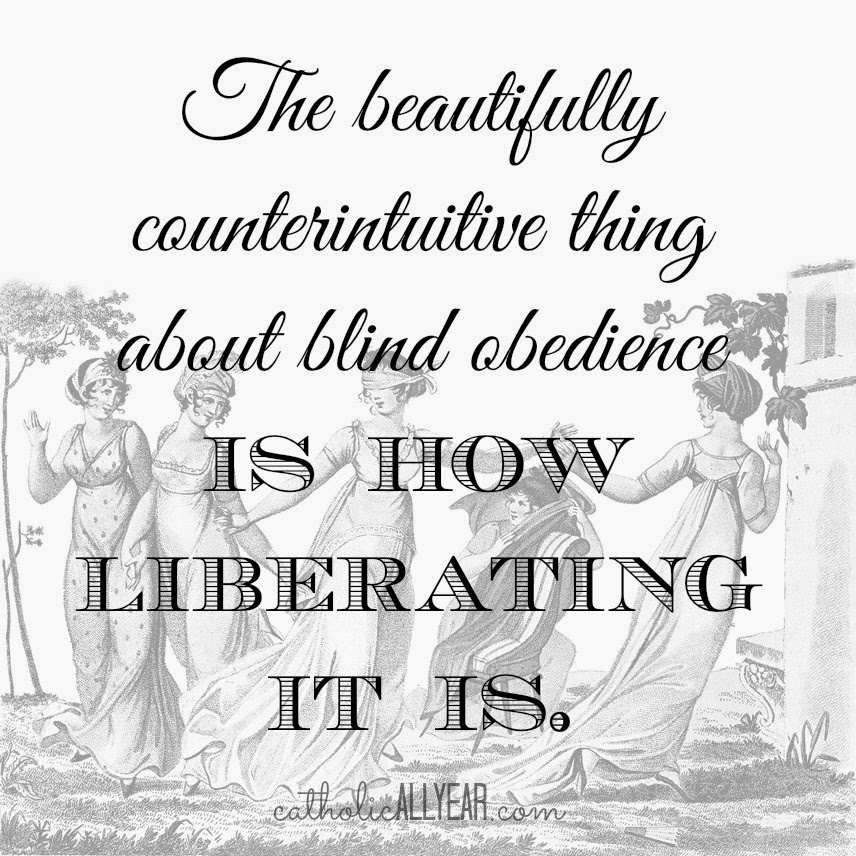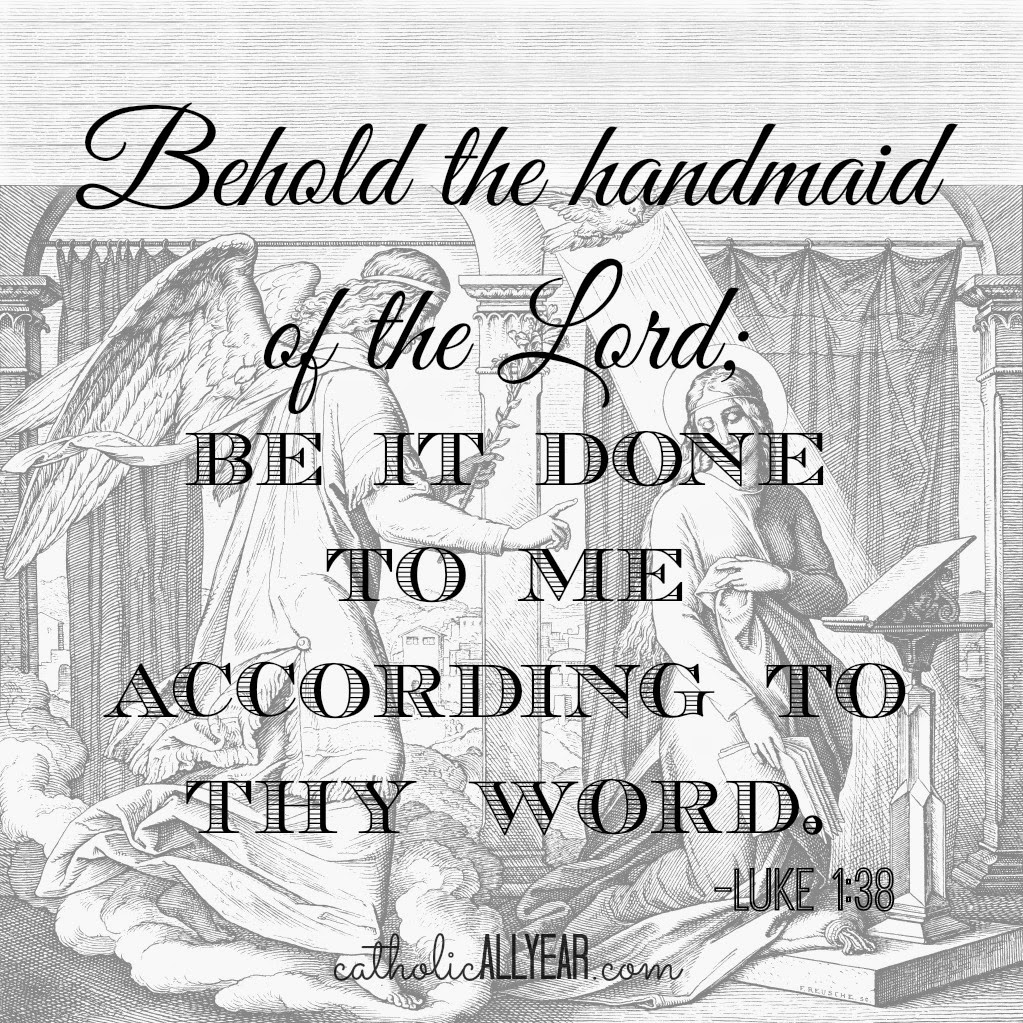Blind obedience is a tough sell these days.
In our culture, the concept of obedience has fallen out of favor. We are hesitant to encourage blind obedience in our children. We want to reason with them, to value their input, to give them choices. We want them to do as we ask because they wish to do so, not because they were MADE to obey without question.
How much less do we hope to cultivate blind obedience in ourselves? Our culture champions choice above almost all other things. Many of us struggle to ask for or follow the advice of our husbands or parents or pastors or spiritual directors. Many of us struggle to follow the Tradition and Magisterium of our Catholic Church, especially when its teaching on important and personal social issues sounds so far removed from what our secular culture believes.
The world out there (and the occasional priest in here) tells us we need to listen to our own consciences alone, not just mindlessly follow the oppressive rules of a dusty old church run by a bunch of old men who don’t really understand what these policies MEAN for us, for our bodies, for our lives.
But that’s not what the Mother of God tells us. Mary was blindly obedient. Gloriously, blindly obedient. Obedient even to things that sounded crazy. That sounded wrong. That sounded like they would cause her to face ridicule and scandal and unimaginable heartbreak.
Her obedience set her free and sanctified her.
And mine, when I can manage it, does the same thing.
Deciding not to use artificial contraception as a newlywed felt like the craziest decision I had ever made. I made it without wisdom or understanding, without much trust or much hope. All I had to give was blind obedience.
The only reason I’m where I am today is that even though what the Church said sounded completely insane, I just couldn’t quite justify thinking I knew better than thousands of years of Church teaching.
And I didn’t know better. The Church was right, she was right about it all. I am deeply grateful that God gave me the grace to make that decision in that moment, and that I was somehow able to correspond to it.
I was able to come to understand the teachings of the Church, because I was willing to be obedient BEFORE I understood.
The beautifully counterintuitive thing about blind obedience is how liberating it is.
We don’t make decisions in a vacuum. We make them in the world, and often in crisis. It’s nearly impossible to make a detached decision on an issue related to sex or marriage or fertility or infertility or life or death, because the moral aspect of these issues is inextricably tangled with our own fears and desires.
In times of difficultly and confusion, we can fall back on blind obedience.
We have a responsibility to form our own consciences, of course, but obedience covers a multitude of sins. If I’ve chosen wrongly, but in obedience to a person or entity in whom it was reasonable to place my trust, I’m very confident trusting in God’s mercy.
But how to find someone to give me good counsel?
1. My husband.
Husbands are mostly better for this than we give them credit for. We’re quick to run to our girlfriends or moms or the world wide web when we need advice, but I know that my husband is my greatest source of drama-free advice. And if I can make myself be obedient to it, I’m always better off.
2. My gals.
I also happen to have girlfriends and a mom and bloggy friends who have the same life and afterlife goals as I do. If they didn’t, I just wouldn’t ever, ever ask them what they thought I should do.
3. My spiritual director.
I am in spiritual direction. When my husband or friends are stumped or not available, or when the situation is too close to them, I take it to spiritual direction. A spiritual director can be anyone you’d trust to advise you well. I’ve met with both priests and laywomen as spiritual directors over the years. Both have been great. I’m seeing a priest now, and we meet once a month. I believe some priests and nuns take a vow of obedience to their spiritual directors. My situation isn’t so formal. I just get good advice. I could choose not to take it, but that would kind of defeat the purpose.
Confidence is not at odds with obedience. Both are virtuous. Being obedient doesn’t mean being cowed. It means knowing when to say:
How shall this be done, because I know not man?
Behold the handmaid of the Lord; be it done to me according to thy word.









